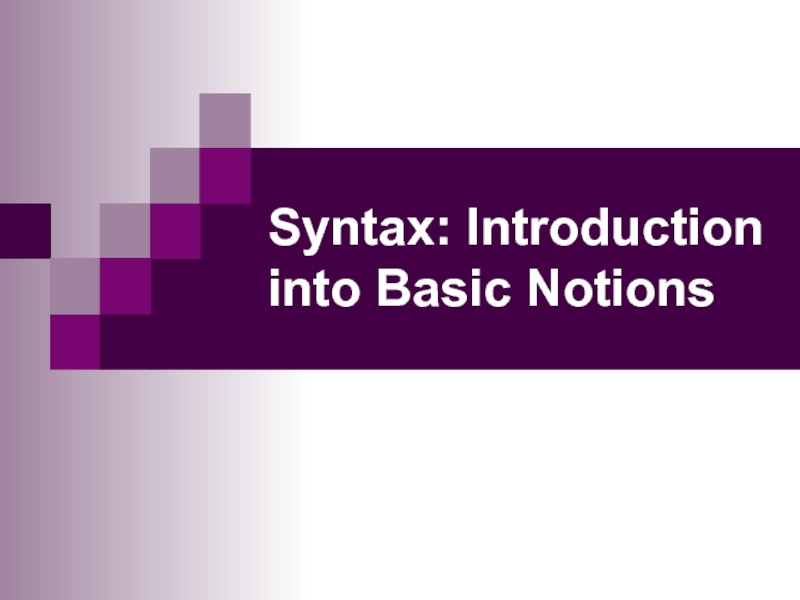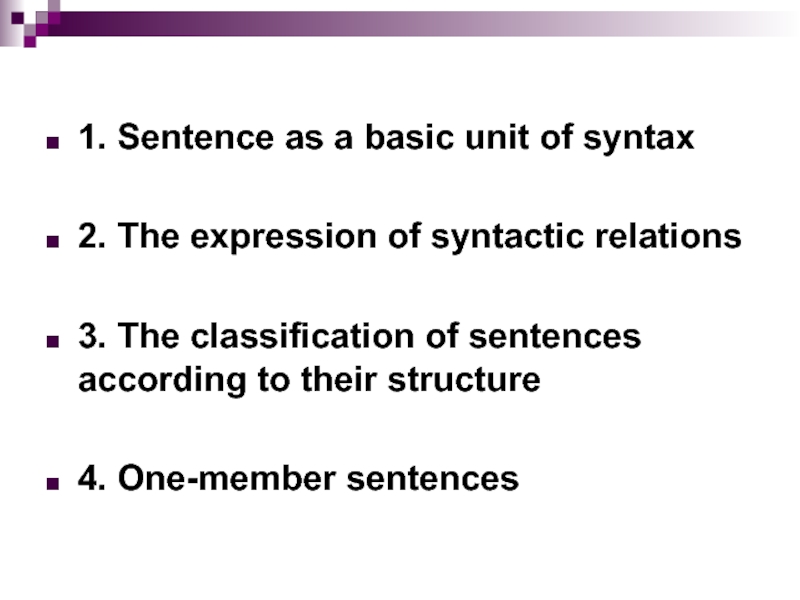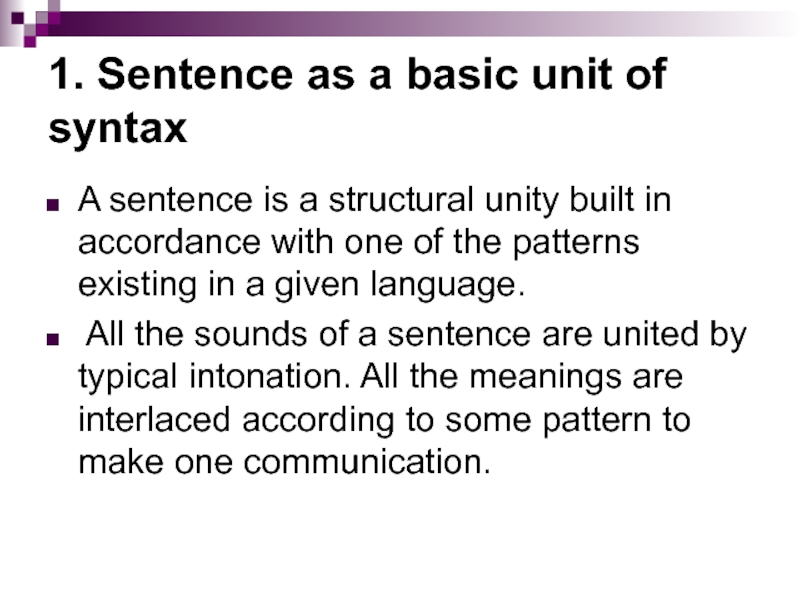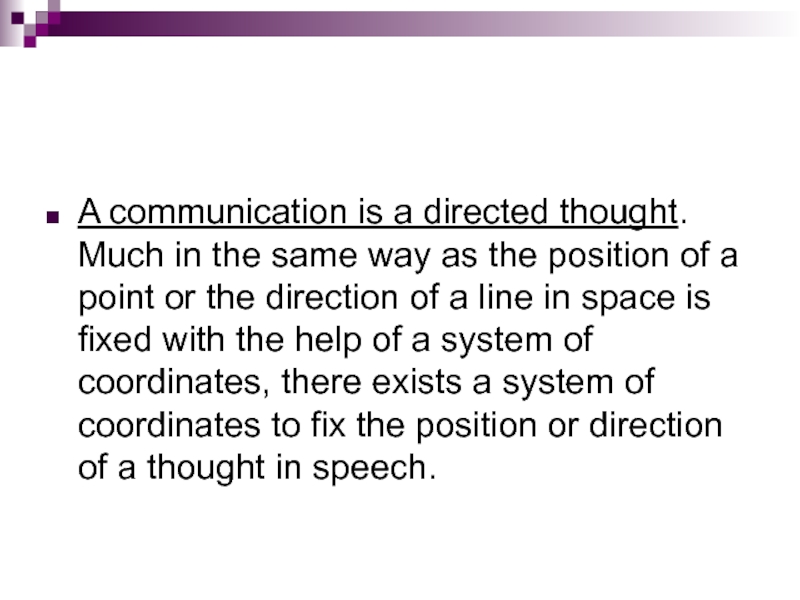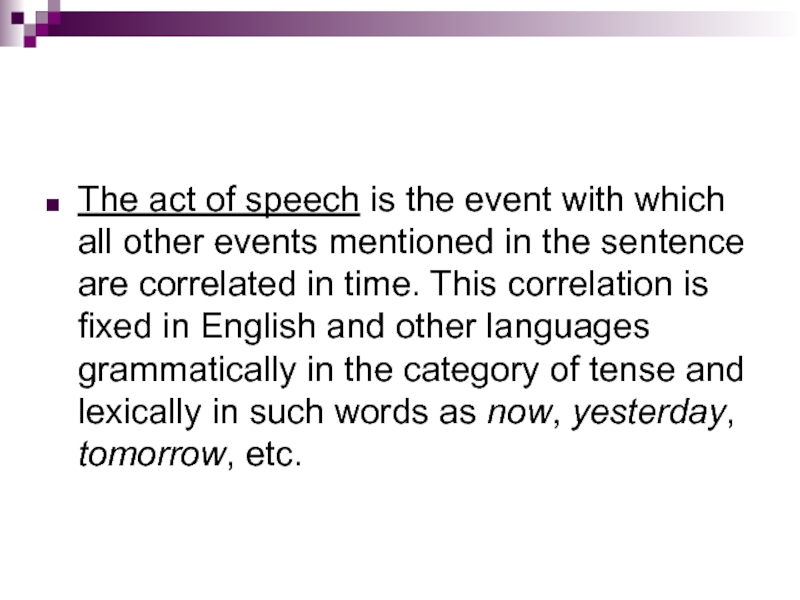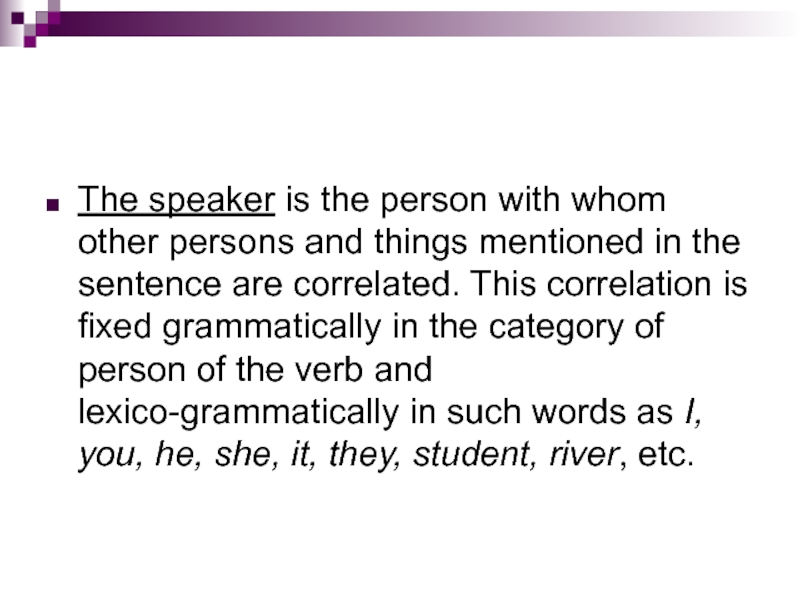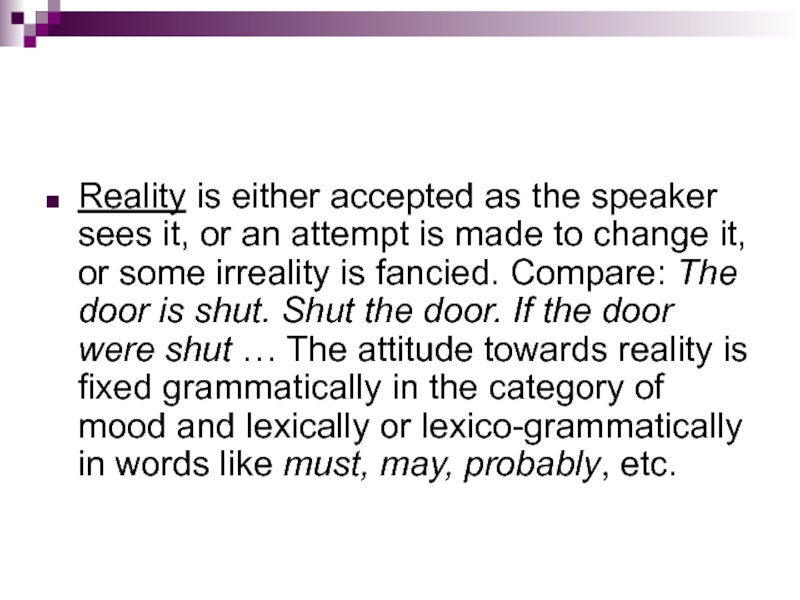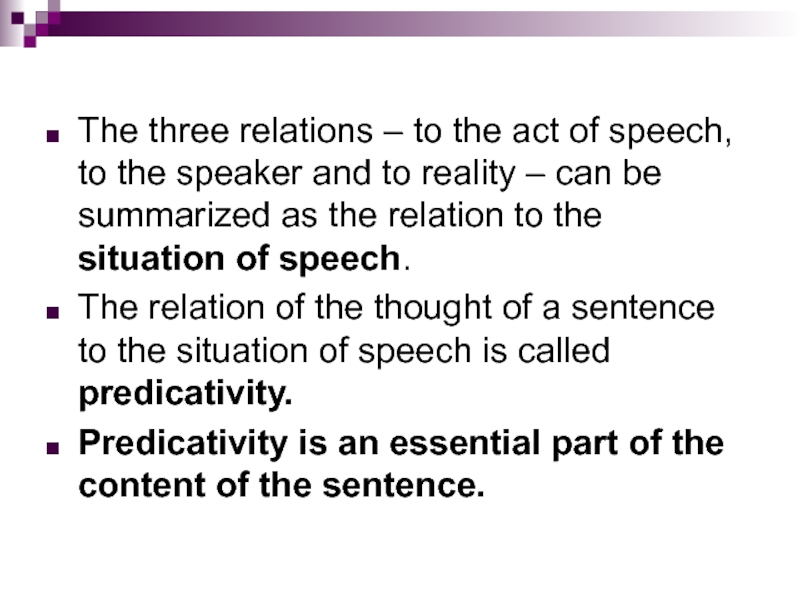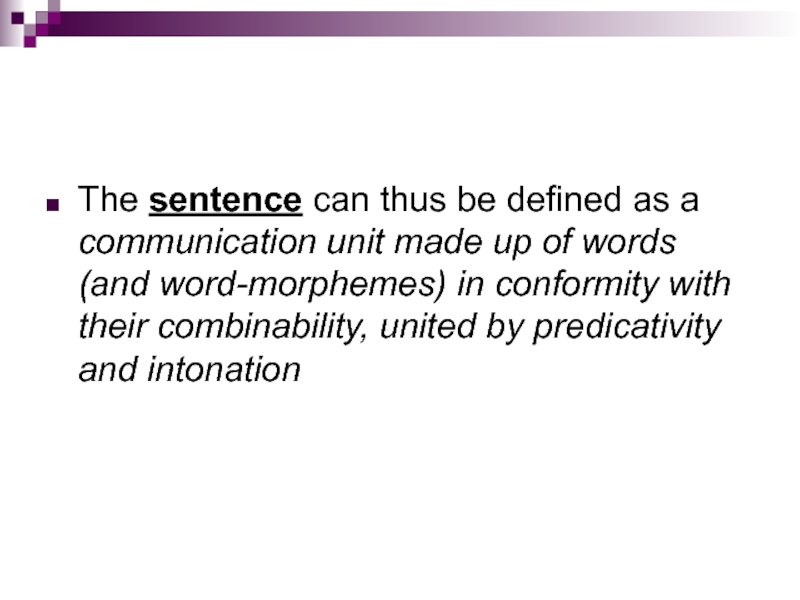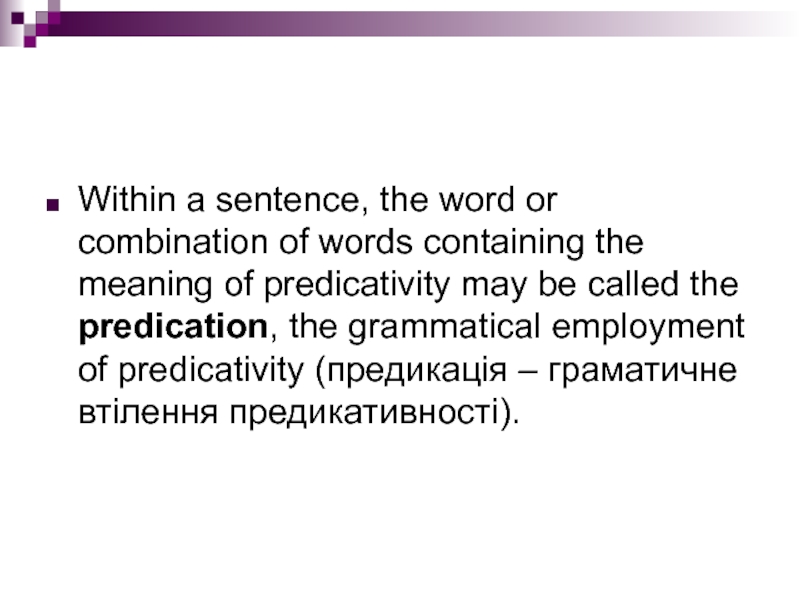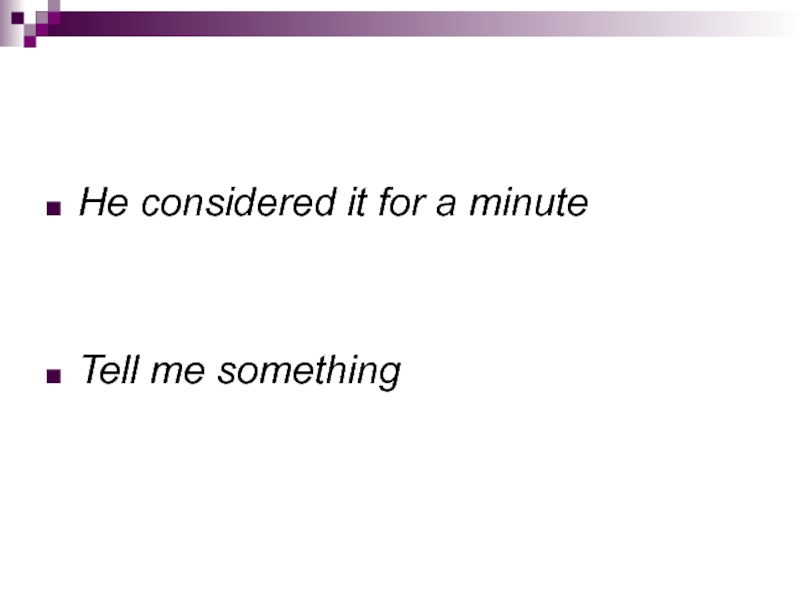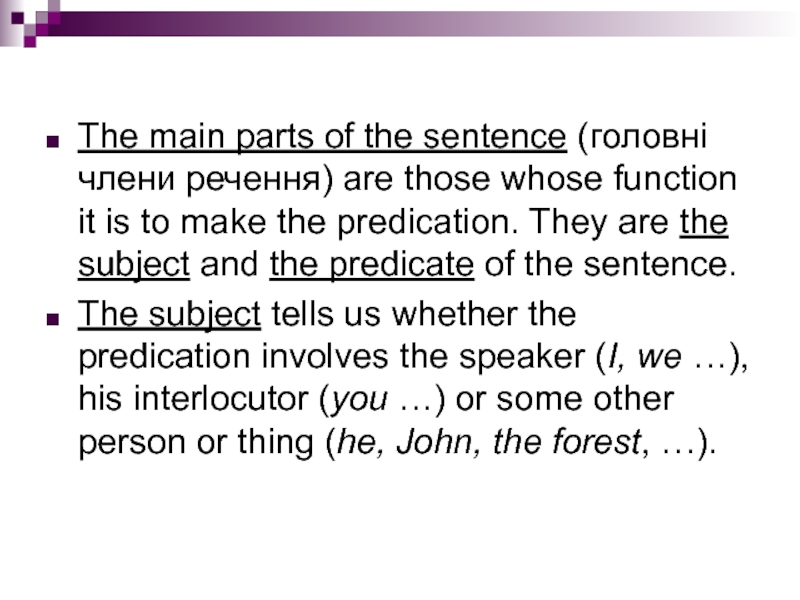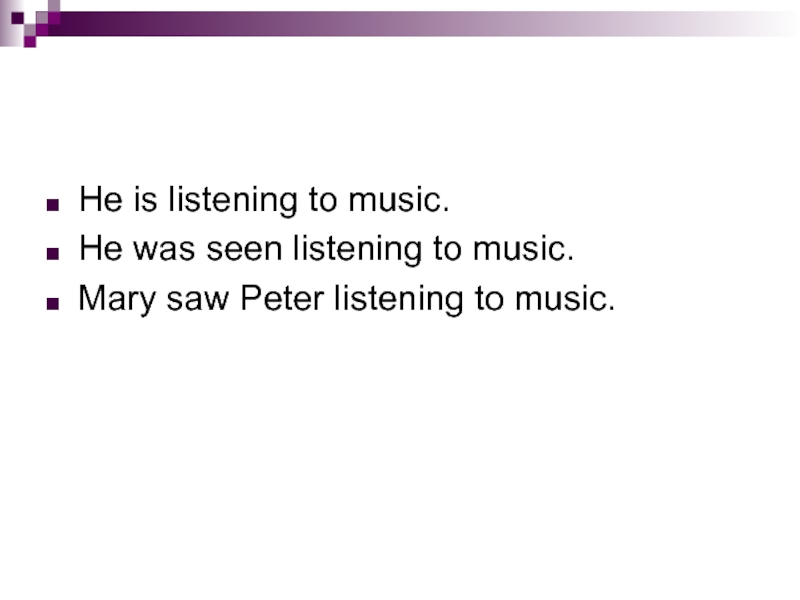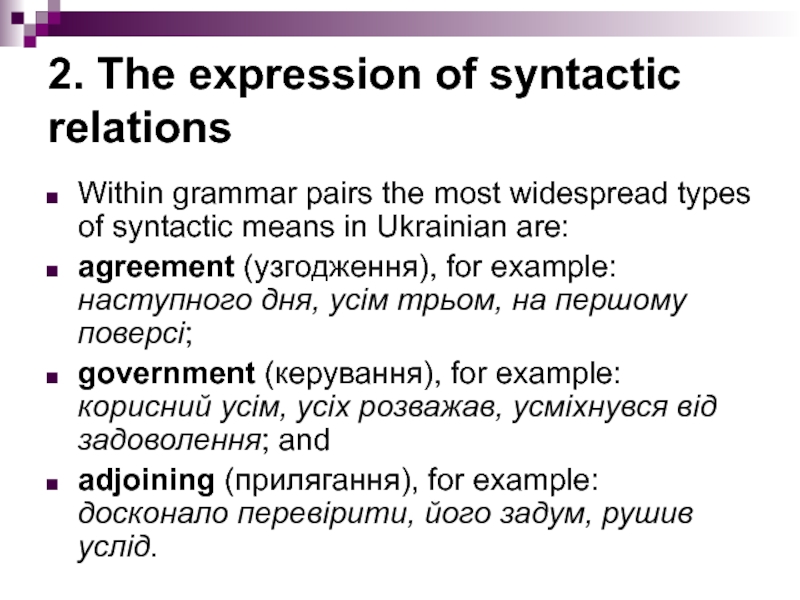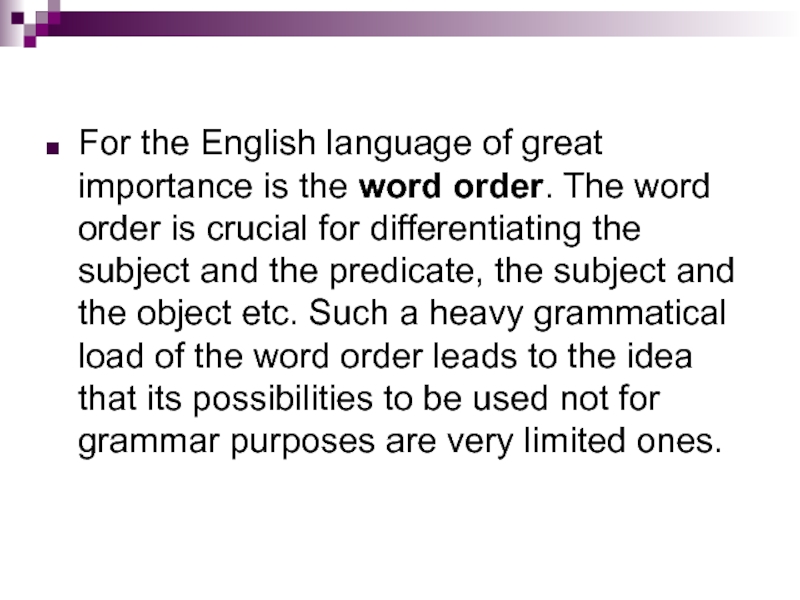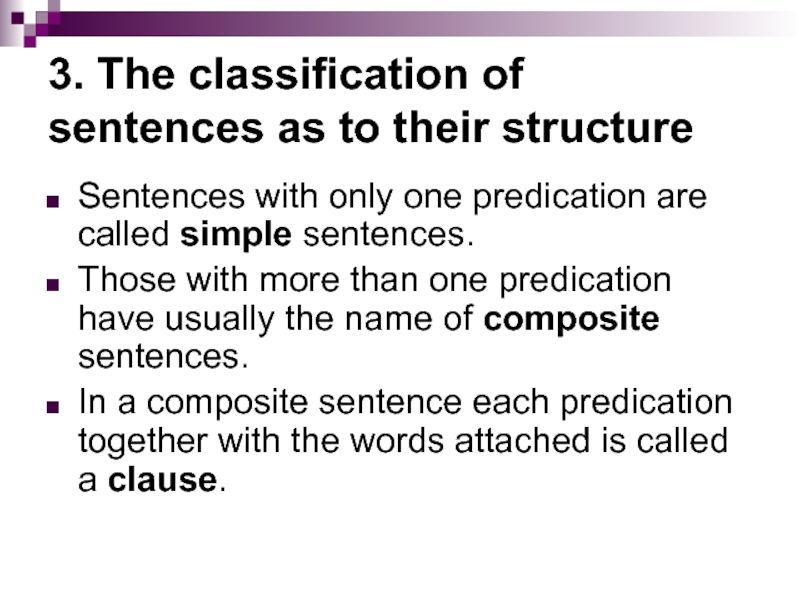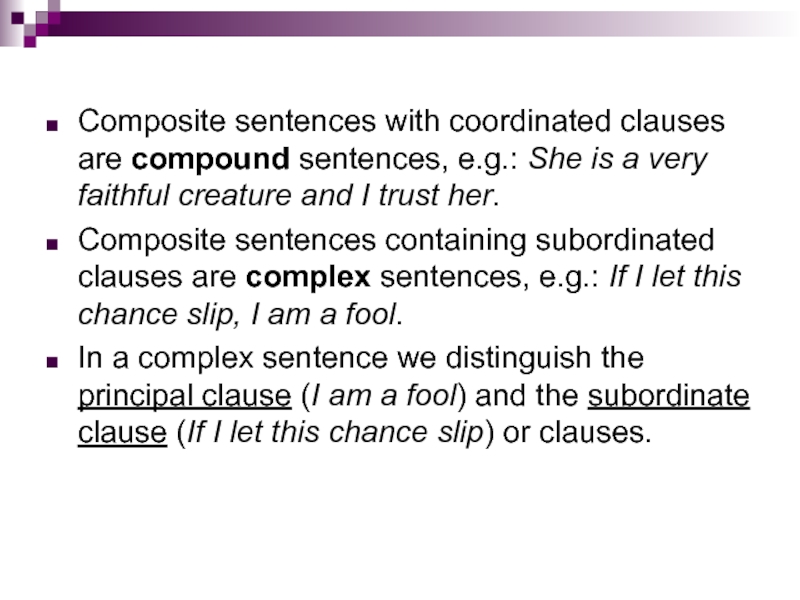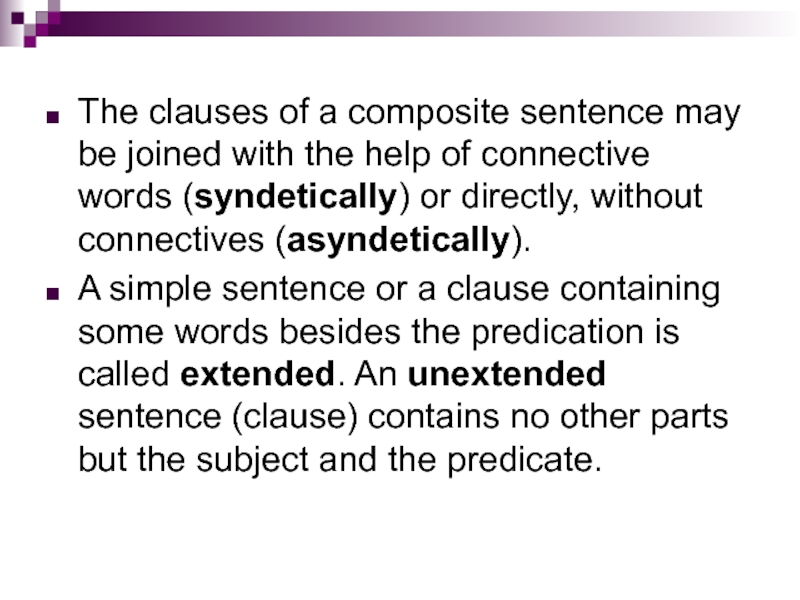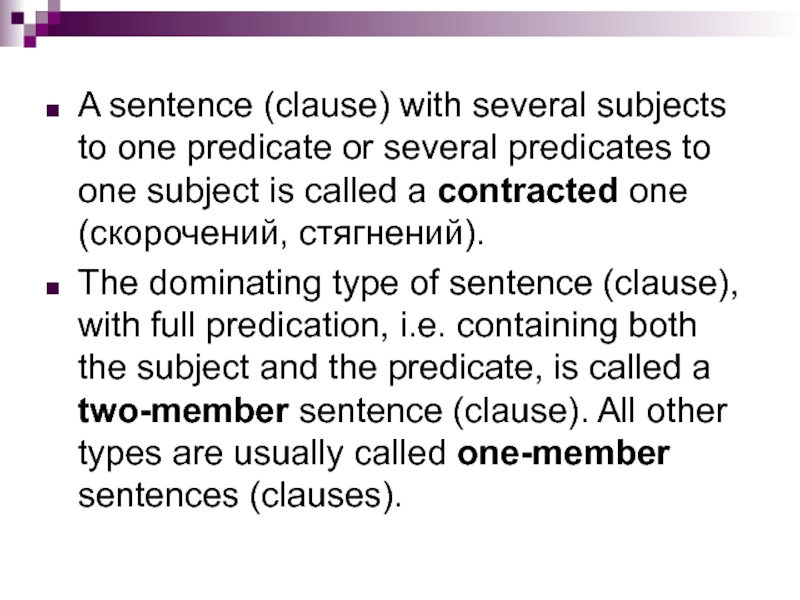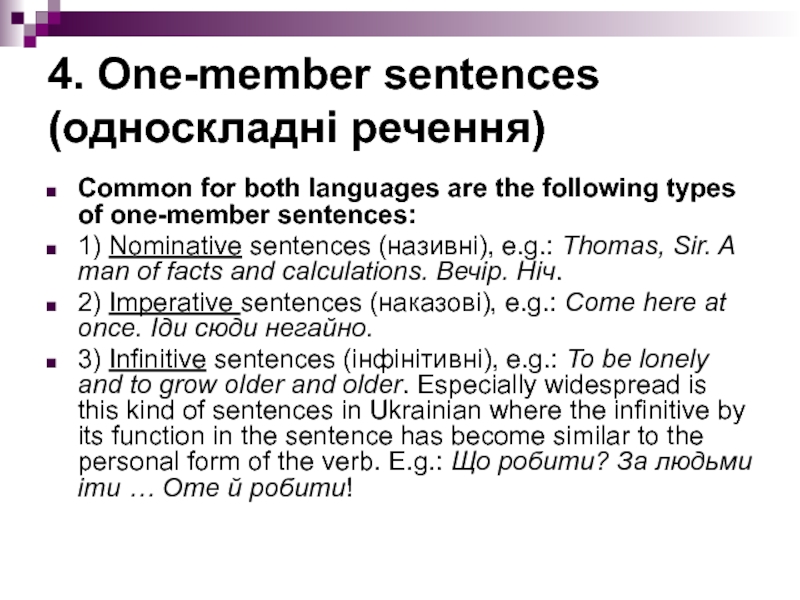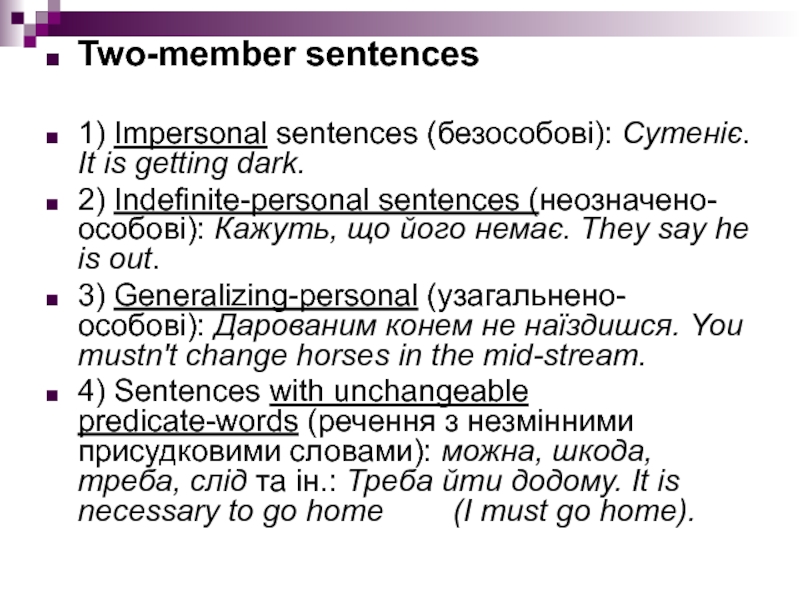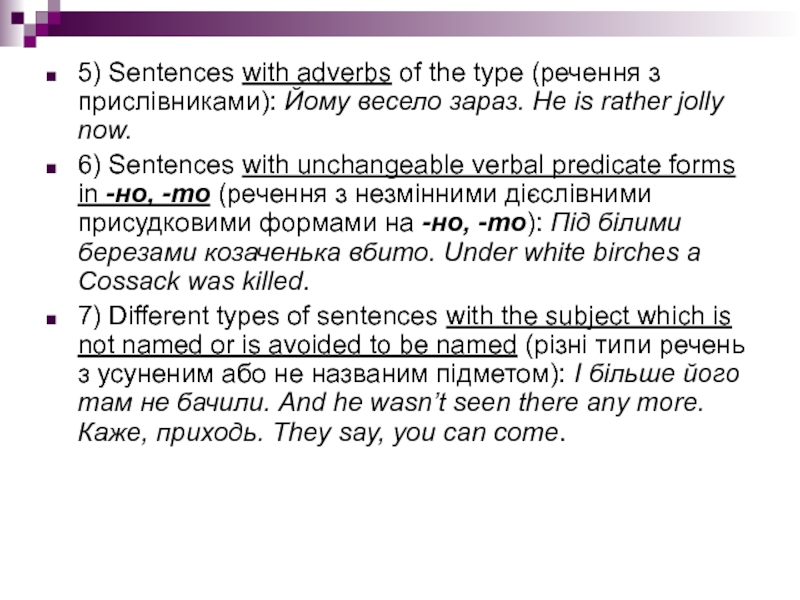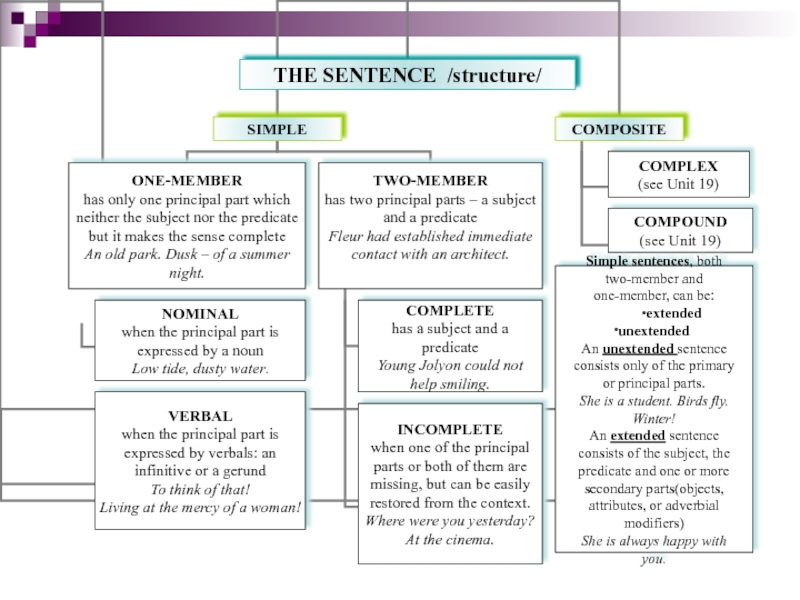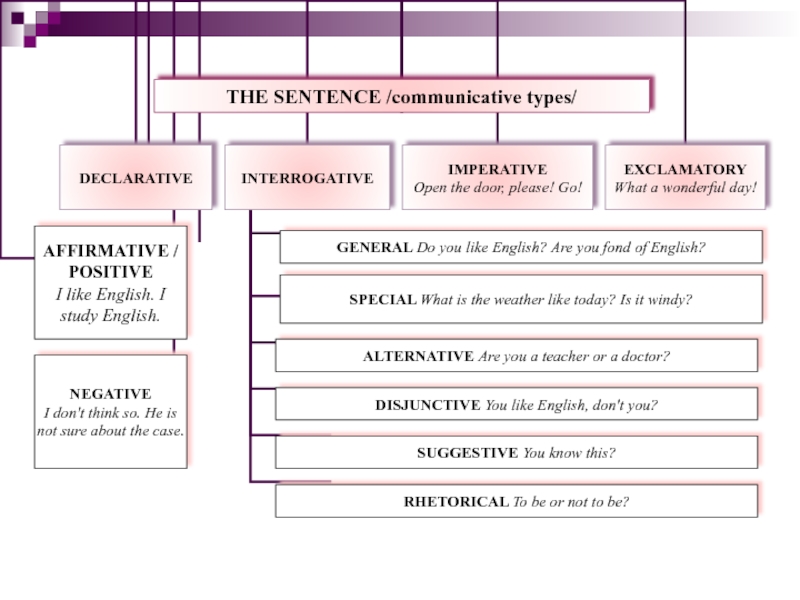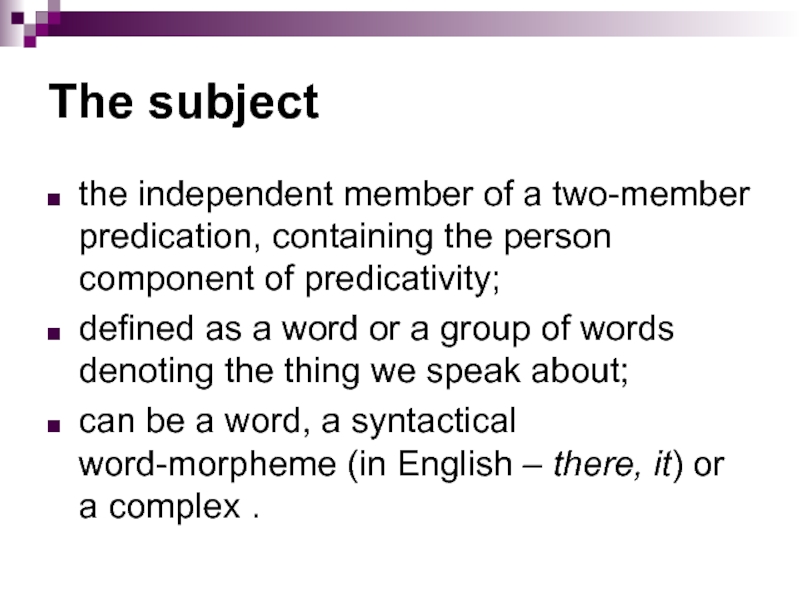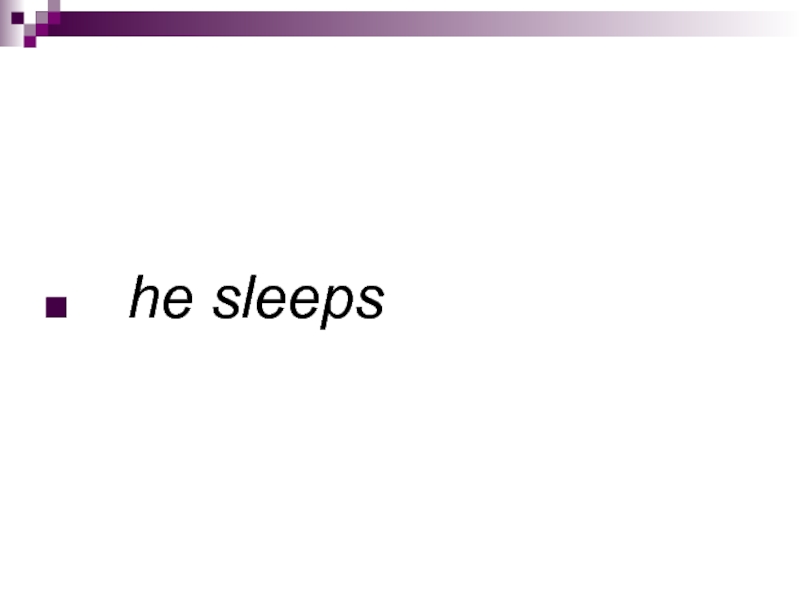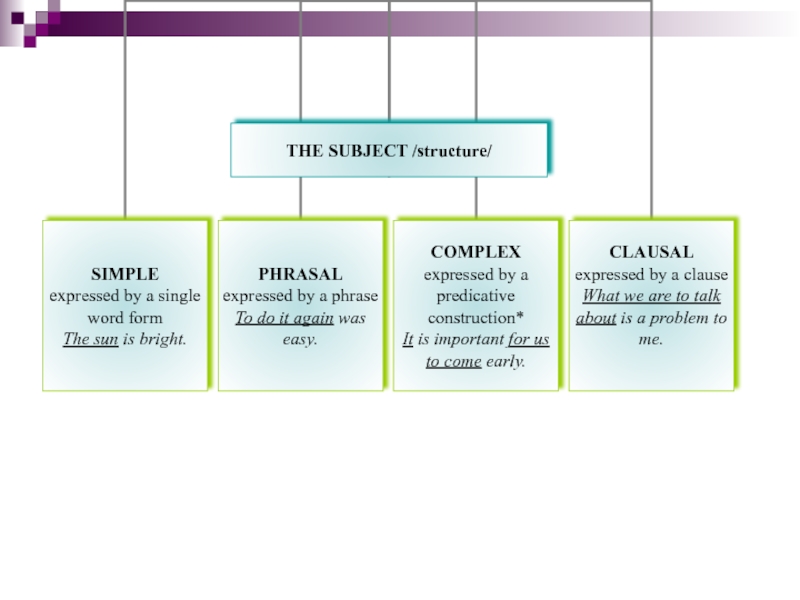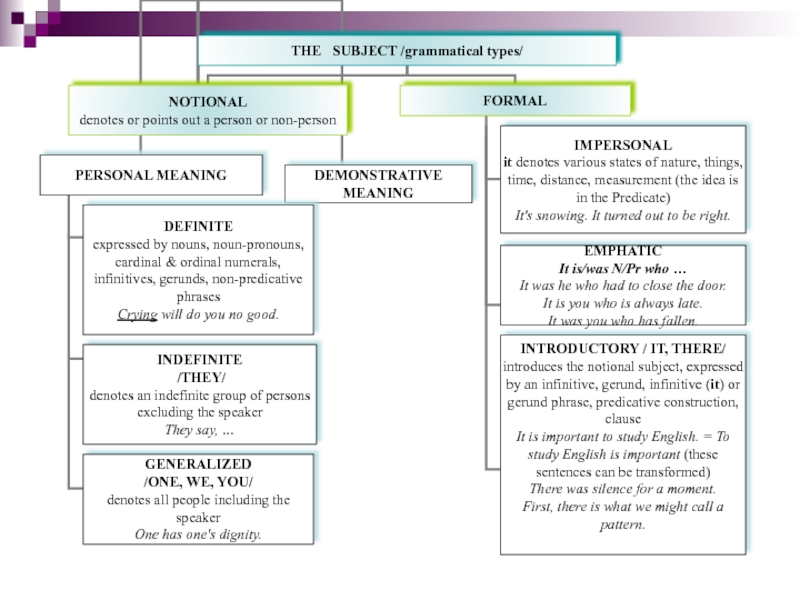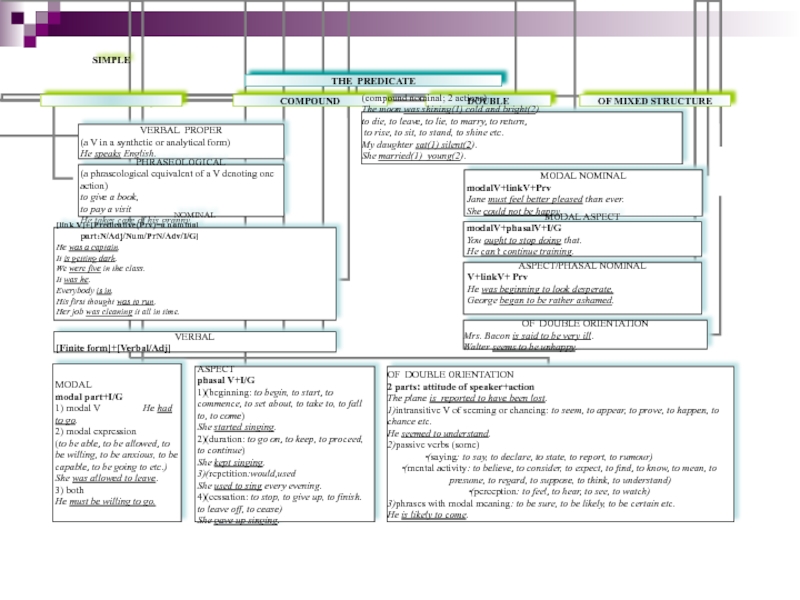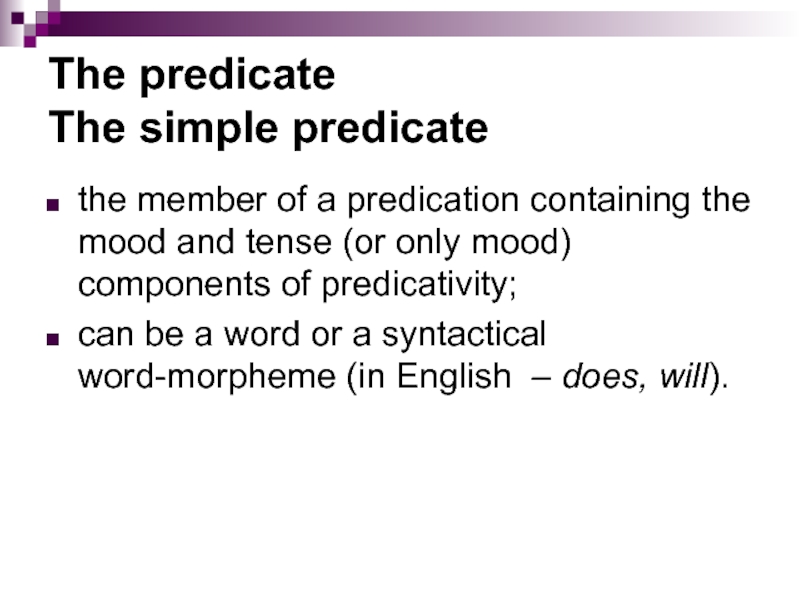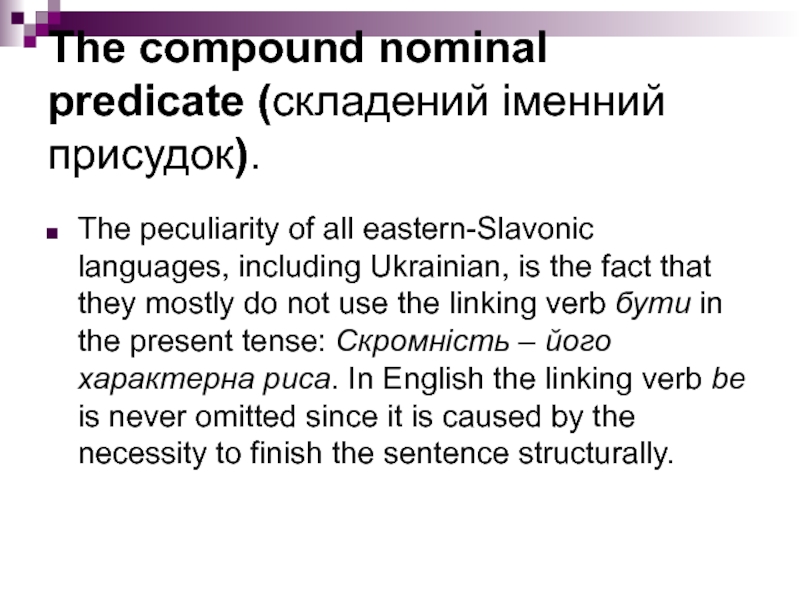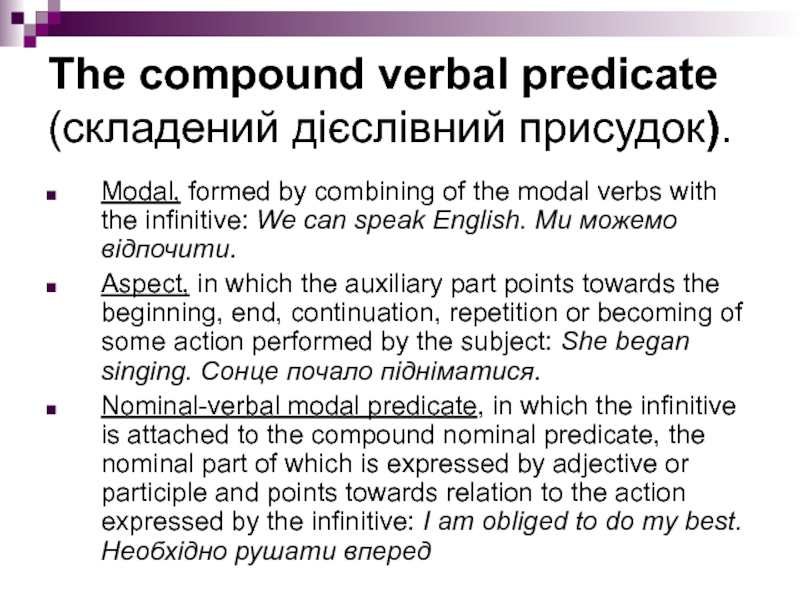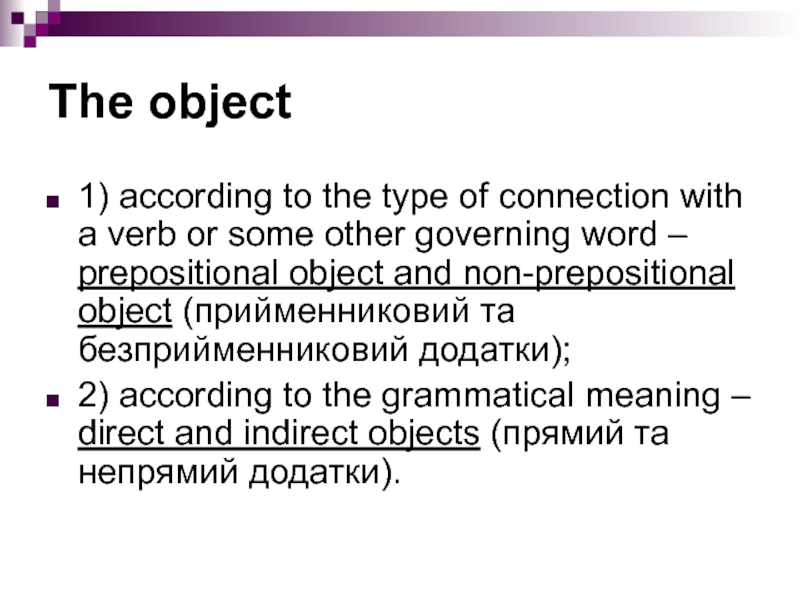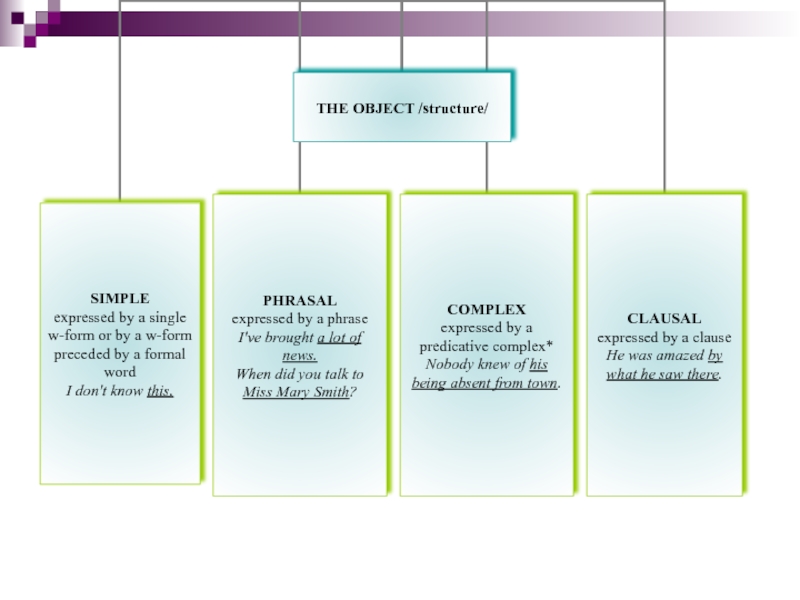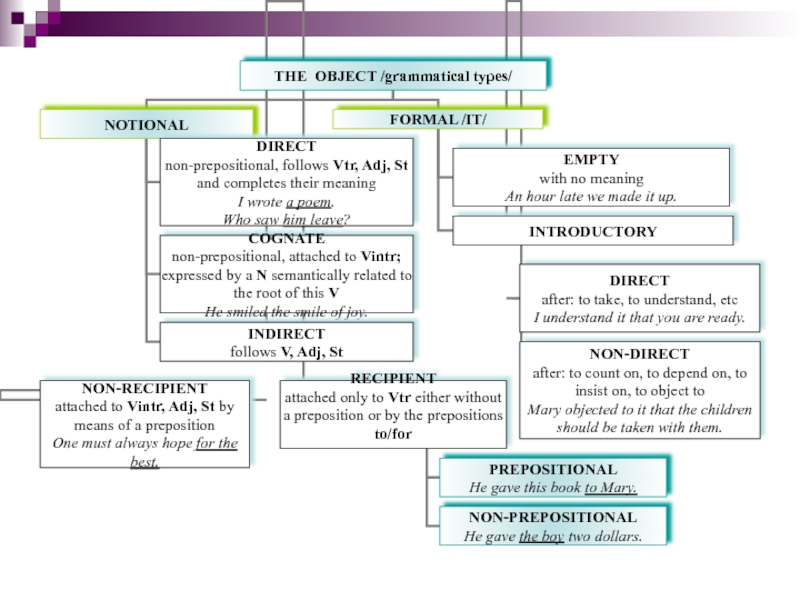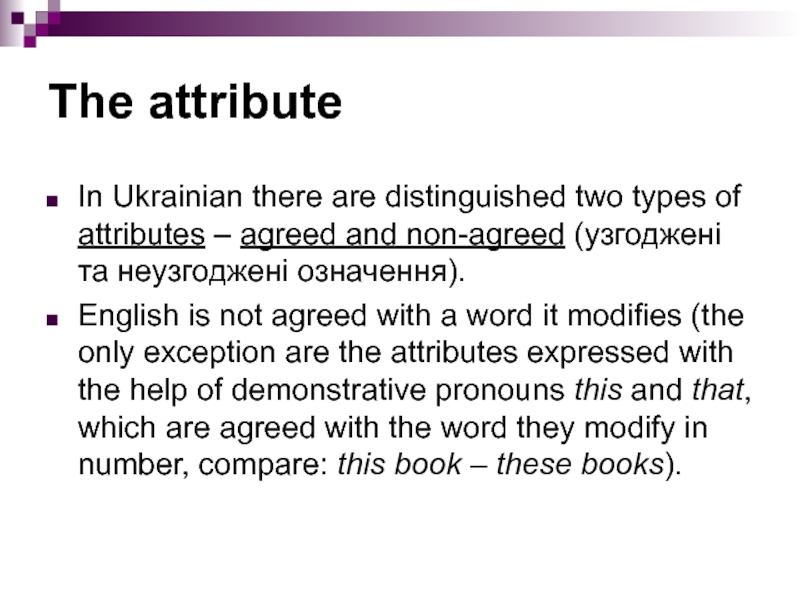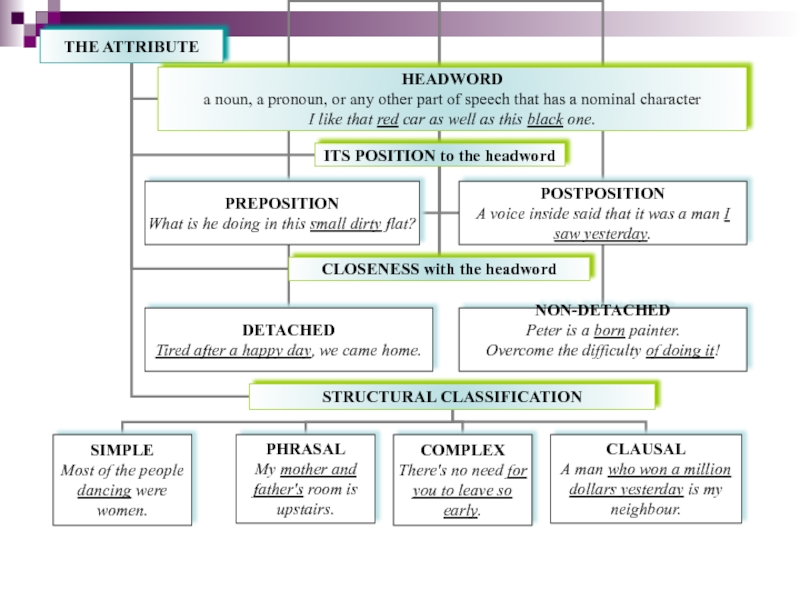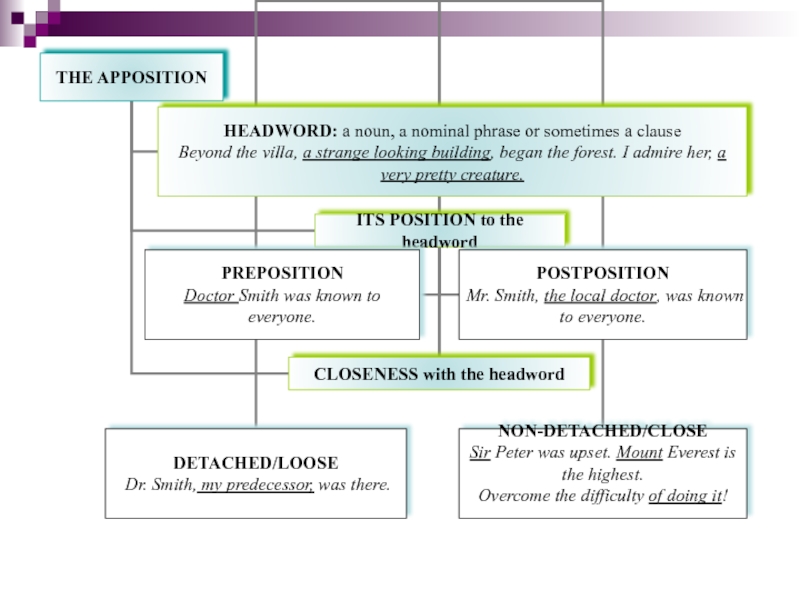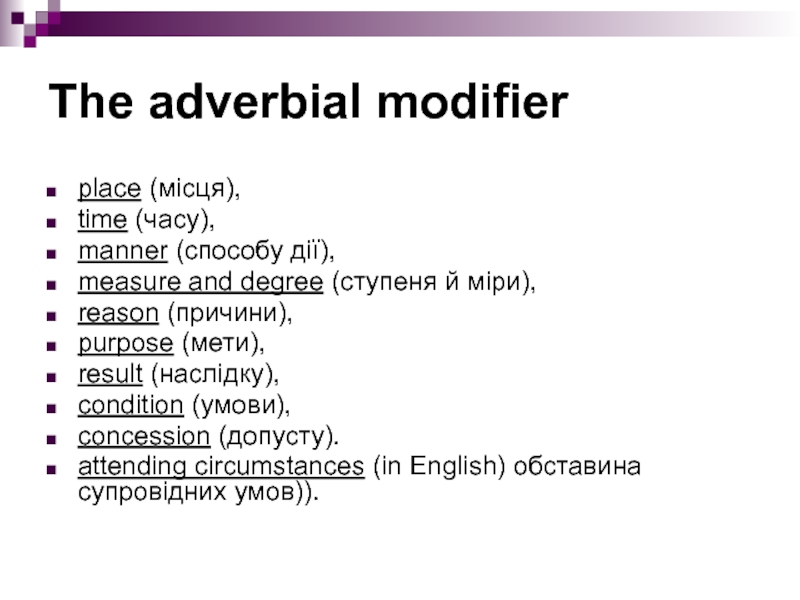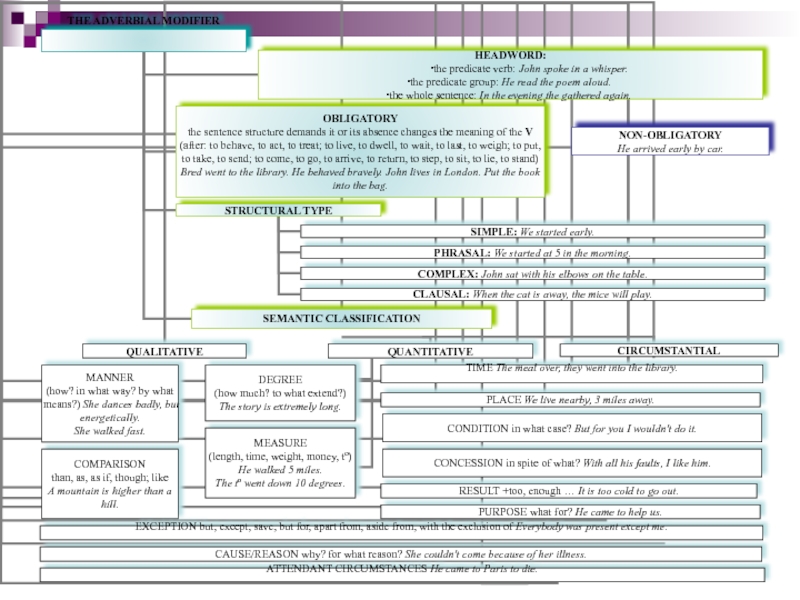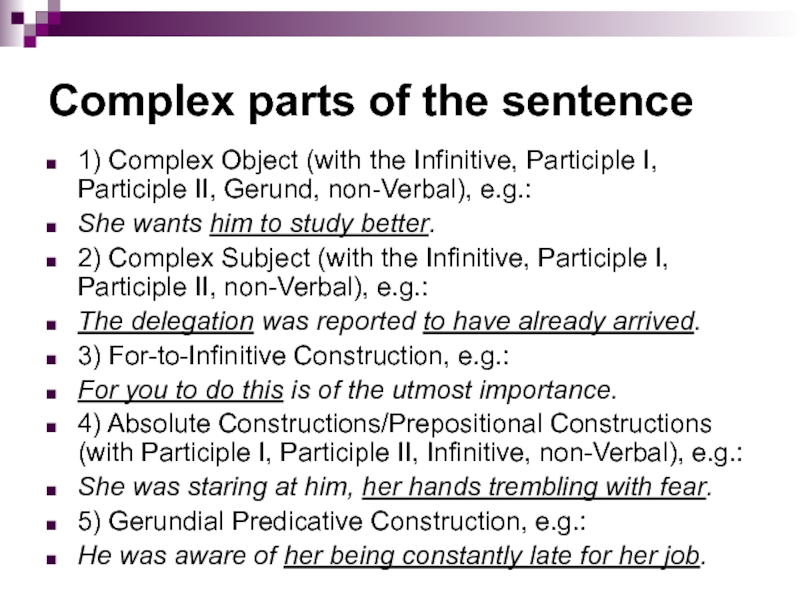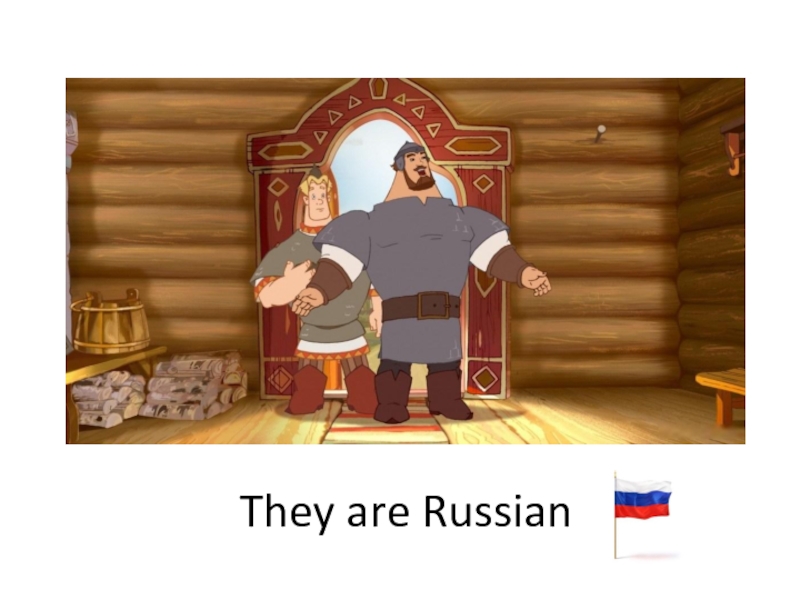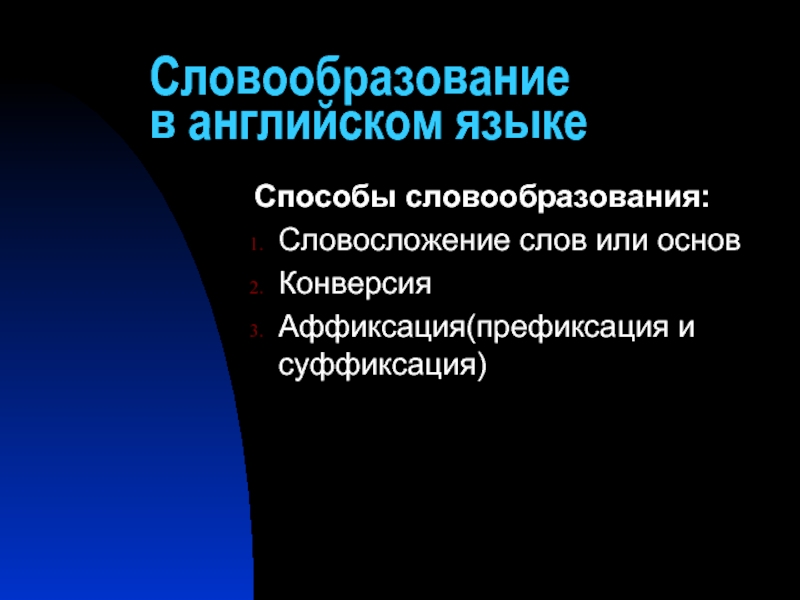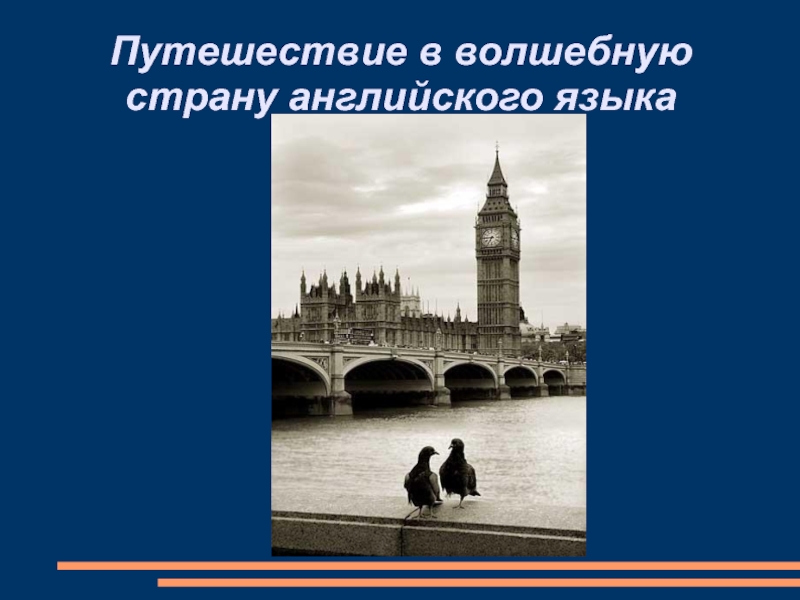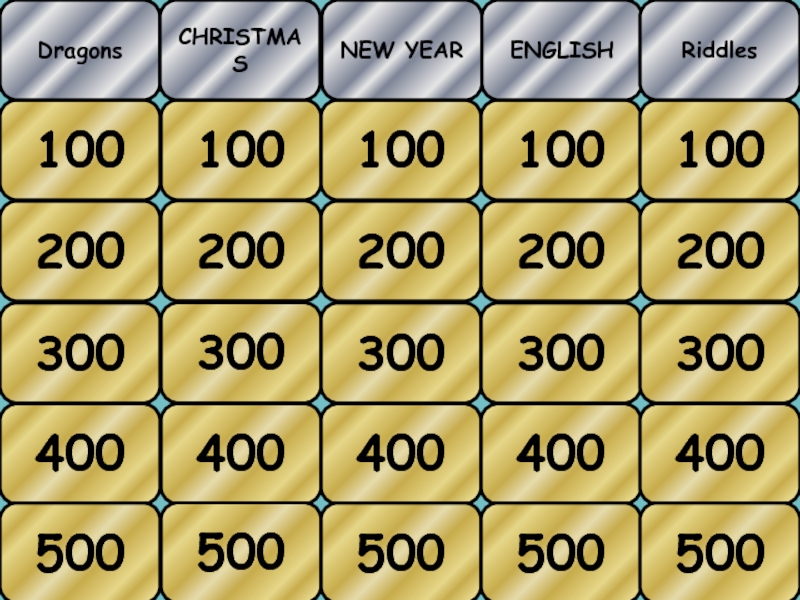- Главная
- Разное
- Дизайн
- Бизнес и предпринимательство
- Аналитика
- Образование
- Развлечения
- Красота и здоровье
- Финансы
- Государство
- Путешествия
- Спорт
- Недвижимость
- Армия
- Графика
- Культурология
- Еда и кулинария
- Лингвистика
- Английский язык
- Астрономия
- Алгебра
- Биология
- География
- Детские презентации
- Информатика
- История
- Литература
- Маркетинг
- Математика
- Медицина
- Менеджмент
- Музыка
- МХК
- Немецкий язык
- ОБЖ
- Обществознание
- Окружающий мир
- Педагогика
- Русский язык
- Технология
- Физика
- Философия
- Химия
- Шаблоны, картинки для презентаций
- Экология
- Экономика
- Юриспруденция
Syntax: Introduction into Basic Notions презентация
Содержание
- 1. Syntax: Introduction into Basic Notions
- 2. 1. Sentence as a basic unit of
- 3. 1. Sentence as a basic unit of
- 4. A communication is a directed thought.
- 5. The act of speech is the event
- 6. The speaker is the person with whom
- 7. Reality is either accepted as the speaker
- 8. The three relations – to the act
- 9. The sentence can thus be defined as
- 10. Within a sentence, the word or combination
- 11. He considered it for a minute Tell me something
- 12. The main parts of the sentence
- 13. He is listening to music. He was
- 14. 2. The expression of syntactic relations Within
- 15. For the English language of great importance
- 16. 3. The classification of sentences as to
- 17. Composite sentences with coordinated clauses are
- 18. The clauses of a composite sentence may
- 19. A sentence (clause) with several subjects to
- 20. 4. One-member sentences (односкладні речення) Common
- 21. Two-member sentences 1) Impersonal sentences (безособові):
- 22. 5) Sentences with adverbs of the type
- 25. The subject the independent member of a
- 26. he sleeps
- 30. The predicate The simple predicate
- 31. The compound nominal predicate (складений iменний присудок).
- 32. The compound verbal predicate (складений дієслівний присудок).
- 33. The object 1) according to the
- 36. The attribute In Ukrainian there are
- 39. The adverbial modifier place (місця),
- 41. Complex parts of the sentence 1)
Слайд 21. Sentence as a basic unit of syntax
2. The expression of
syntactic relations
3. The classification of sentences according to their structure
4. One-member sentences
3. The classification of sentences according to their structure
4. One-member sentences
Слайд 31. Sentence as a basic unit of syntax
A sentence is a
structural unity built in accordance with one of the patterns existing in a given language.
All the sounds of a sentence are united by typical intonation. All the meanings are interlaced according to some pattern to make one communication.
All the sounds of a sentence are united by typical intonation. All the meanings are interlaced according to some pattern to make one communication.
Слайд 4
A communication is a directed thought. Much in the same way
as the position of a point or the direction of a line in space is fixed with the help of a system of coordinates, there exists a system of coordinates to fix the position or direction of a thought in speech.
Слайд 5The act of speech is the event with which all other
events mentioned in the sentence are correlated in time. This correlation is fixed in English and other languages grammatically in the category of tense and lexically in such words as now, yesterday, tomorrow, etc.
Слайд 6The speaker is the person with whom other persons and things
mentioned in the sentence are correlated. This correlation is fixed grammatically in the category of person of the verb and lexico-grammatically in such words as I, you, he, she, it, they, student, river, etc.
Слайд 7Reality is either accepted as the speaker sees it, or an
attempt is made to change it, or some irreality is fancied. Compare: The door is shut. Shut the door. If the door were shut … The attitude towards reality is fixed grammatically in the category of mood and lexically or lexico-grammatically in words like must, may, probably, etc.
Слайд 8The three relations – to the act of speech, to the
speaker and to reality – can be summarized as the relation to the situation of speech.
The relation of the thought of a sentence to the situation of speech is called predicativity.
Predicativity is an essential part of the content of the sentence.
The relation of the thought of a sentence to the situation of speech is called predicativity.
Predicativity is an essential part of the content of the sentence.
Слайд 9The sentence can thus be defined as a communication unit made
up of words (and word-morphemes) in conformity with their combinability, united by predicativity and intonation
Слайд 10Within a sentence, the word or combination of words containing the
meaning of predicativity may be called the predication, the grammatical employment of predicativity (предикація – граматичне втілення предикативності).
Слайд 12
The main parts of the sentence (головні члени речення) are those
whose function it is to make the predication. They are the subject and the predicate of the sentence.
The subject tells us whether the predication involves the speaker (I, we …), his interlocutor (you …) or some other person or thing (he, John, the forest, …).
The subject tells us whether the predication involves the speaker (I, we …), his interlocutor (you …) or some other person or thing (he, John, the forest, …).
Слайд 142. The expression of syntactic relations
Within grammar pairs the most widespread
types of syntactic means in Ukrainian are:
agreement (узгодження), for example: наступного дня, усім трьом, на першому поверсі;
government (керування), for example: корисний усім, усіх розважав, усміхнувся від задоволення; and
adjoining (прилягання), for example: досконало перевірити, його задум, рушив услід.
agreement (узгодження), for example: наступного дня, усім трьом, на першому поверсі;
government (керування), for example: корисний усім, усіх розважав, усміхнувся від задоволення; and
adjoining (прилягання), for example: досконало перевірити, його задум, рушив услід.
Слайд 15For the English language of great importance is the word order.
The word order is crucial for differentiating the subject and the predicate, the subject and the object etc. Such a heavy grammatical load of the word order leads to the idea that its possibilities to be used not for grammar purposes are very limited ones.
Слайд 163. The classification of sentences as to their structure
Sentences with
only one predication are called simple sentences.
Those with more than one predication have usually the name of composite sentences.
In a composite sentence each predication together with the words attached is called a clause.
Those with more than one predication have usually the name of composite sentences.
In a composite sentence each predication together with the words attached is called a clause.
Слайд 17
Composite sentences with coordinated clauses are compound sentences, e.g.: She is
a very faithful creature and I trust her.
Composite sentences containing subordinated clauses are complex sentences, e.g.: If I let this chance slip, I am a fool.
In a complex sentence we distinguish the principal clause (I am a fool) and the subordinate clause (If I let this chance slip) or clauses.
Composite sentences containing subordinated clauses are complex sentences, e.g.: If I let this chance slip, I am a fool.
In a complex sentence we distinguish the principal clause (I am a fool) and the subordinate clause (If I let this chance slip) or clauses.
Слайд 18The clauses of a composite sentence may be joined with the
help of connective words (syndetically) or directly, without connectives (asyndetically).
A simple sentence or a clause containing some words besides the predication is called extended. An unextended sentence (clause) contains no other parts but the subject and the predicate.
A simple sentence or a clause containing some words besides the predication is called extended. An unextended sentence (clause) contains no other parts but the subject and the predicate.
Слайд 19A sentence (clause) with several subjects to one predicate or several
predicates to one subject is called a contracted one (скорочений, стягнений).
The dominating type of sentence (clause), with full predication, i.e. containing both the subject and the predicate, is called a two-member sentence (clause). All other types are usually called one-member sentences (clauses).
The dominating type of sentence (clause), with full predication, i.e. containing both the subject and the predicate, is called a two-member sentence (clause). All other types are usually called one-member sentences (clauses).
Слайд 204. One-member sentences (односкладні речення)
Common for both languages are the
following types of one-member sentences:
1) Nominative sentences (називні), e.g.: Thomas, Sir. A man of facts and calculations. Вечір. Ніч.
2) Imperative sentences (наказові), e.g.: Come here at once. Іди сюди негайно.
3) Infinitive sentences (інфінітивні), e.g.: To be lonely and to grow older and older. Especially widespread is this kind of sentences in Ukrainian where the infinitive by its function in the sentence has become similar to the personal form of the verb. E.g.: Що робити? За людьми іти … Оте й робити!
1) Nominative sentences (називні), e.g.: Thomas, Sir. A man of facts and calculations. Вечір. Ніч.
2) Imperative sentences (наказові), e.g.: Come here at once. Іди сюди негайно.
3) Infinitive sentences (інфінітивні), e.g.: To be lonely and to grow older and older. Especially widespread is this kind of sentences in Ukrainian where the infinitive by its function in the sentence has become similar to the personal form of the verb. E.g.: Що робити? За людьми іти … Оте й робити!
Слайд 21Two-member sentences
1) Impersonal sentences (безособові): Сутеніє. It is getting dark.
2) Indefinite-personal
sentences (неозначено-особові): Кажуть, що його немає. They say he is out.
3) Generalizing-personal (узагальнено-особові): Дарованим конем не наїздишся. You mustn't change horses in the mid-stream.
4) Sentences with unchangeable predicate-words (речення з незмінними присудковими словами): можна, шкода, треба, слід та ін.: Треба йти додому. It is necessary to go home (I must go home).
3) Generalizing-personal (узагальнено-особові): Дарованим конем не наїздишся. You mustn't change horses in the mid-stream.
4) Sentences with unchangeable predicate-words (речення з незмінними присудковими словами): можна, шкода, треба, слід та ін.: Треба йти додому. It is necessary to go home (I must go home).
Слайд 225) Sentences with adverbs of the type (речення з прислівниками): Йому
весело зараз. He is rather jolly now.
6) Sentences with unchangeable verbal predicate forms in -но, -то (речення з незмінними дієслівними присудковими формами на -но, -то): Під білими березами козаченька вбито. Under white birches a Cossack was killed.
7) Different types of sentences with the subject which is not named or is avoided to be named (різні типи речень з усуненим або не названим підметом): І більше його там не бачили. And he wasn’t seen there any more. Каже, приходь. They say, you can come.
6) Sentences with unchangeable verbal predicate forms in -но, -то (речення з незмінними дієслівними присудковими формами на -но, -то): Під білими березами козаченька вбито. Under white birches a Cossack was killed.
7) Different types of sentences with the subject which is not named or is avoided to be named (різні типи речень з усуненим або не названим підметом): І більше його там не бачили. And he wasn’t seen there any more. Каже, приходь. They say, you can come.
Слайд 25The subject
the independent member of a two-member predication, containing the person
component of predicativity;
defined as a word or a group of words denoting the thing we speak about;
can be a word, a syntactical word-morpheme (in English – there, it) or a complex .
defined as a word or a group of words denoting the thing we speak about;
can be a word, a syntactical word-morpheme (in English – there, it) or a complex .
Слайд 30The predicate
The simple predicate
the member of a predication containing
the mood and tense (or only mood) components of predicativity;
can be a word or a syntactical word-morpheme (in English – does, will).
can be a word or a syntactical word-morpheme (in English – does, will).
Слайд 31The compound nominal predicate (складений iменний присудок).
The peculiarity of all
eastern-Slavonic languages, including Ukrainian, is the fact that they mostly do not use the linking verb бути in the present tense: Скромність – його характерна риса. In English the linking verb be is never omitted since it is caused by the necessity to finish the sentence structurally.
Слайд 32The compound verbal predicate (складений дієслівний присудок).
Modal, formed by combining
of the modal verbs with the infinitive: We can speak English. Ми можемо відпочити.
Aspect, in which the auxiliary part points towards the beginning, end, continuation, repetition or becoming of some action performed by the subject: She began singing. Сонце почало підніматися.
Nominal-verbal modal predicate, in which the infinitive is attached to the compound nominal predicate, the nominal part of which is expressed by adjective or participle and points towards relation to the action expressed by the infinitive: I am obliged to do my best. Необхідно рушати вперед
Aspect, in which the auxiliary part points towards the beginning, end, continuation, repetition or becoming of some action performed by the subject: She began singing. Сонце почало підніматися.
Nominal-verbal modal predicate, in which the infinitive is attached to the compound nominal predicate, the nominal part of which is expressed by adjective or participle and points towards relation to the action expressed by the infinitive: I am obliged to do my best. Необхідно рушати вперед
Слайд 33The object
1) according to the type of connection with a
verb or some other governing word – prepositional object and non-prepositional object (прийменниковий та безприйменниковий додатки);
2) according to the grammatical meaning – direct and indirect objects (прямий та непрямий додатки).
2) according to the grammatical meaning – direct and indirect objects (прямий та непрямий додатки).
Слайд 36The attribute
In Ukrainian there are distinguished two types of attributes
– agreed and non-agreed (узгоджені та неузгоджені означення).
English is not agreed with a word it modifies (the only exception are the attributes expressed with the help of demonstrative pronouns this and that, which are agreed with the word they modify in number, compare: this book – these books).
English is not agreed with a word it modifies (the only exception are the attributes expressed with the help of demonstrative pronouns this and that, which are agreed with the word they modify in number, compare: this book – these books).
Слайд 39The adverbial modifier
place (місця),
time (часу),
manner (способу дії),
measure
and degree (ступеня й міри),
reason (причини),
purpose (мети),
result (наслідку),
condition (умови),
concession (допусту).
attending circumstances (in English) обставина супровідних умов)).
reason (причини),
purpose (мети),
result (наслідку),
condition (умови),
concession (допусту).
attending circumstances (in English) обставина супровідних умов)).
Слайд 41Complex parts of the sentence
1) Complex Object (with the Infinitive,
Participle I, Participle II, Gerund, non-Verbal), e.g.:
She wants him to study better.
2) Complex Subject (with the Infinitive, Participle I, Participle II, non-Verbal), e.g.:
The delegation was reported to have already arrived.
3) For-to-Infinitive Construction, e.g.:
For you to do this is of the utmost importance.
4) Absolute Constructions/Prepositional Constructions (with Participle I, Participle II, Infinitive, non-Verbal), e.g.:
She was staring at him, her hands trembling with fear.
5) Gerundial Predicative Construction, e.g.:
He was aware of her being constantly late for her job.
She wants him to study better.
2) Complex Subject (with the Infinitive, Participle I, Participle II, non-Verbal), e.g.:
The delegation was reported to have already arrived.
3) For-to-Infinitive Construction, e.g.:
For you to do this is of the utmost importance.
4) Absolute Constructions/Prepositional Constructions (with Participle I, Participle II, Infinitive, non-Verbal), e.g.:
She was staring at him, her hands trembling with fear.
5) Gerundial Predicative Construction, e.g.:
He was aware of her being constantly late for her job.
